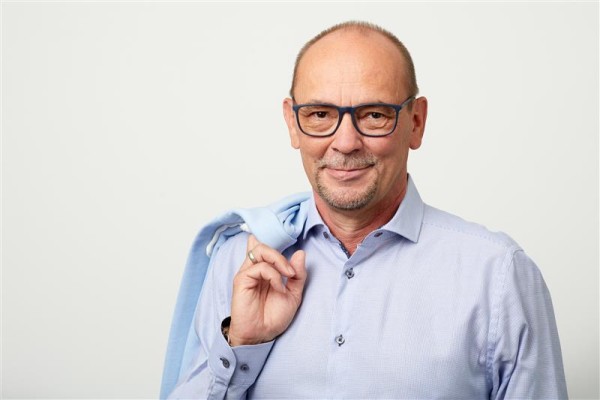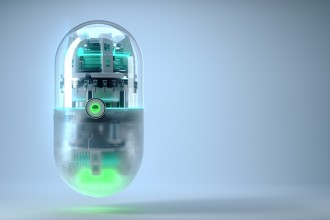Introduction of Michael and His Company
Tell us a bit about yourself and your connection to the topic Cell Line Development
„Of course. I am traditionally trained as a molecular biologist, involved in cell line development since the late 1980s. I did my doctoral thesis at Rhein Biotech in Germany, which was pioneering in genetic engineering techniques at the time. After my Ph.D., I stayed there for another 11 years before founding my own company in 2002, specializing in microbial cell line and process development.“
Understanding Cell Line Development
Could you explain what cell line development actually involves?
„Essentially, cell line development can be understood as training individual cells to perform functions they couldn't do before“, says Michael. According to him the classical example is our pancreas, which produces insulin, something a bacterium or yeast cell does not naturally do. Through genetic engineering, these microbes can be altered to produce human insulin. He adds that this is possible for any protein needed for pharmaceutical or even non-pharmaceutical applications, ensuring the introduced genetic information in a line is safe and stable.
Cell Line Development, a Solution for serious diseases?
Could this process be a solution to diabetes?
Michael noted that while cell line development is not a solution to cure diabetes, it certainly presents a therapeutic approach. He emphasized that insulin treatment using recombinant cell lines has long been established. Initially, insulin was extracted from animal pancreases and later humanized. Now, it’s produced cleanly and unlimitedly using engineered cells, making it indistinguishable from what a healthy human produces.
Current Practical Applications of Cell Line Development
What are some of the most common practical applications today?
Michael highlighted the diverse range of applications for cell line development, ranging from therapeutic proteins like insulin to prevention of diseases such as Hepatitis B and producing cancer-fighting antibodies. He also mentioned its applications in mundane areas like cosmetics, feed enzymes, and novel foods for vegan products.
Company Specialization and Application Areas
Focusing on your company, are you specialized in any particular niche, or do you cover a broad range of applications?
Michael explained that their company specializes in working with yeasts and bacteria. He emphasized the focus on what their specific cells can produce, with the exception of monoclonal antibodies, which need to appear as if they are produced by mammalian cells.
The Role of Artificial Intelligence in Cell Line Development
Has artificial intelligence begun to play a role in this field?
„AI is increasingly becoming incorporated, particularly in research phases and protein design. The steps to develop cell lines are being streamlined by AI, speeding up the development process significantly.“, says Michael.
Technological Trends and Innovations in the Industry
Speaking of technological trends, have there been innovations that have significantly changed the industry in recent years?
Michael noted that while breakthroughs in cell line development are incremental, the mRNA vaccines, initially developed for cancer, found massive application with COVID-19, showcasing the adaptability and speed of these technologies.
Future Developments and Potentials in Cell Line Development
Looking into the future, are there any processes or applications in cell line development that possess significant potential for advancement?
Michael pointed out that automation is a key trend in cell line development, with many processes evolving toward more automated systems. He mentioned a greater reliance on sensor technology and data analysis, which could potentially revolutionize efficiency and speed.
Emerging Market Trends and Interests of New Industries
Finally, are there emerging market trends or new industries approaching you with interest due to technological advancements?
„Novel Foods is a hot sector, reflecting growing demand for vegan products. Additionally, there's increasing focus on animal wellbeing and health, with an emphasis on preventive measures like vaccines instead of antibiotics. These shifting demands reflect global trends not limited just to Western markets but expanding across various regions.“
The future of cell line development holds exciting possibilities. With the mentioned advancements and the impact of ARTES Biotechnology GmbH we can expect even greater efficiency and innovation in the years to come. As technology continues to evolve, so does the potential for transformative breakthroughs in medicine and beyond.
More About Michael
•Managing Director at Rhein Biontech GmbH (1988-2002)
•Managing Director and Owner of ARTES Biotechnology GmbH
Quickscout
Looking for suitable
technology providers?
Start scouting!





